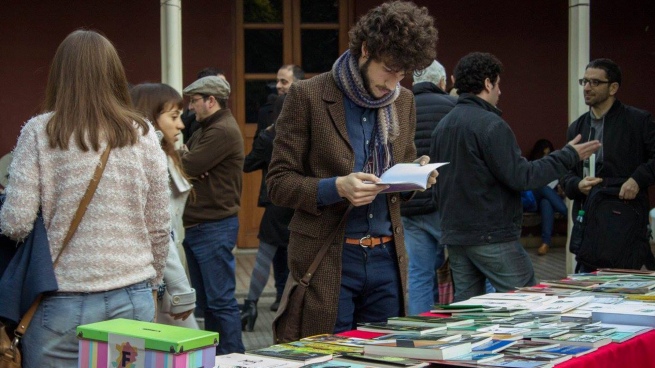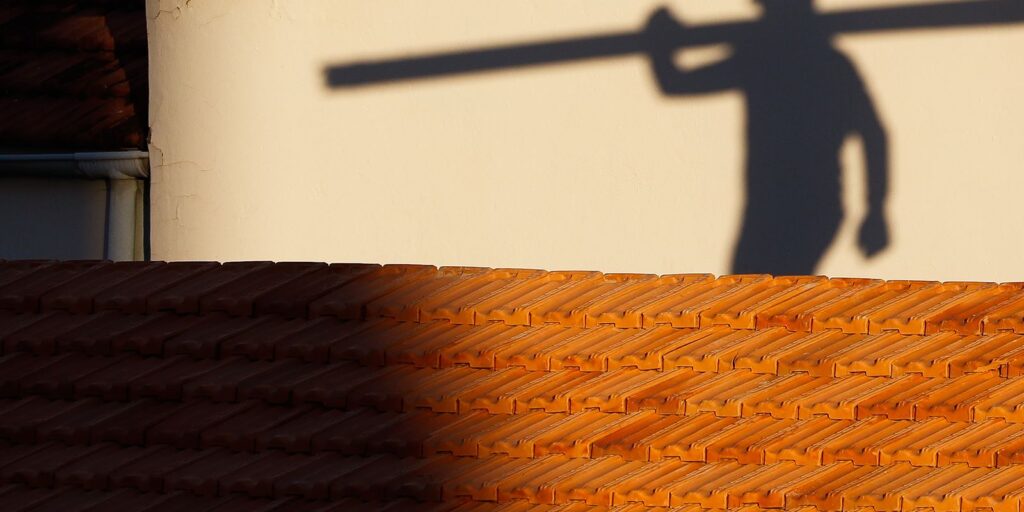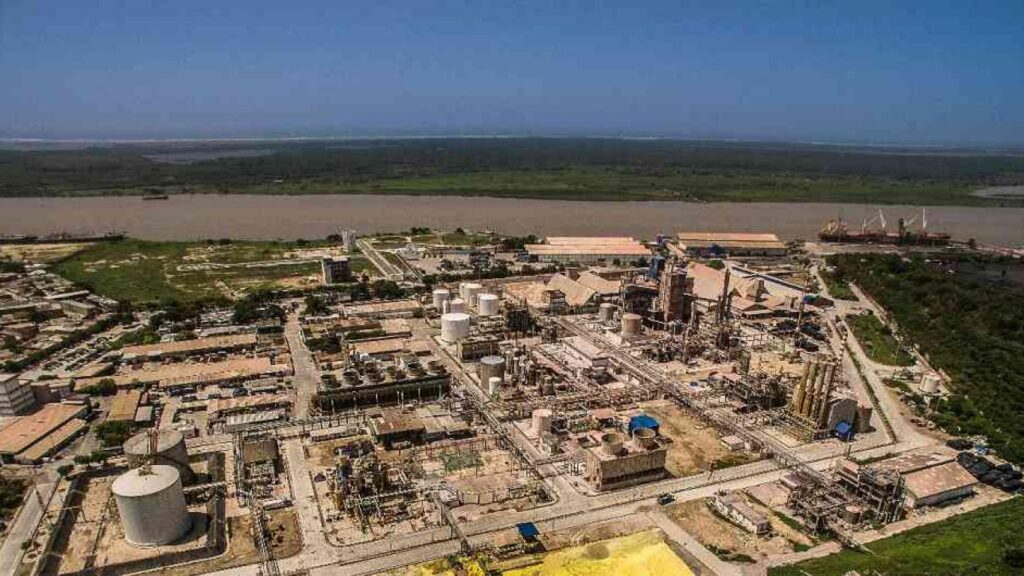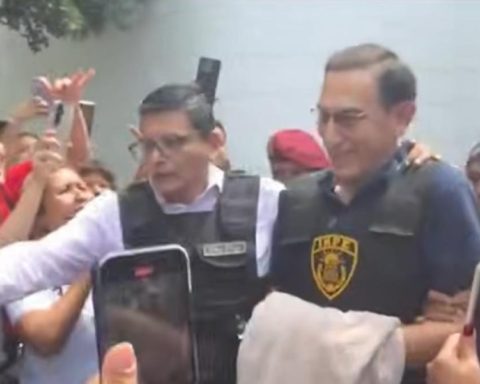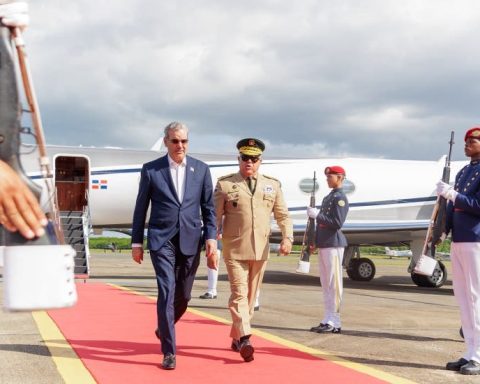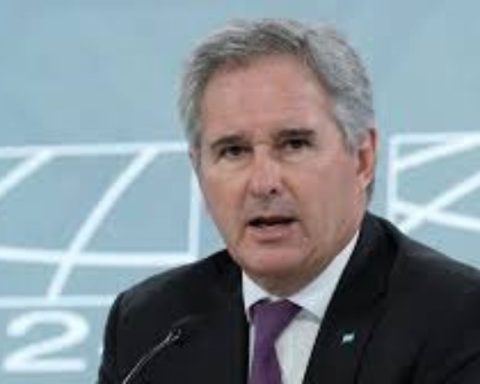With a proposal as expansive as the particular geographical setting where it takes place – between gardens of ancient trees and silent academic cloisters – next Friday the sixth edition of the Tucumán International Literature Festival (FILT), an appointment that with the presence of authors such as Dolores Reyes, Daniel Mella, Hernán Ronsino or Marina Yuszczuk proposes to cross literature with other languages such as cinema, music and theater, in addition to discussing the idea of regional literature as a category that limits and shortens the field of action.
Very close to the Western Cemetery, under the shade of the centennial trees of Avellaneda Park, lies the Museum of the National University of Tucumán (MUNT). A sidewalk higher than the standard, a wide gate and, immediately, the continuity of the park: the museum is made up of a huge garden and rooms around it. In that park and the successive rooms, between an open sky and the silence of the rooms, writers from the country and the world have been gathering since 2015 for one of the most important cultural events in the province, the International Festival of Literature of Tucumán (FILT), which takes place, like every season, within the framework of the Cultural July of the UNT.
Among this year’s authors, Lucrecia Martel, Julieta Laso, Dolores Reyes, Hernán Ronsino, Luciana Tagliapietra, Marina Yuszczuk, Daniel Mella, Alejandro Crotto, Paula Trama, María Lobo, Salustiano Zavalía, Gabriela Bejerman, Ezequiel Radusky, Marta Lopetegui, Grimanesa Lázaro, Florencia Méttola and Ezequiel Svetliza.

The appointment for this year is next weekend, between Friday 29 and Sunday 31 July. For this edition, moreover, a proposal as expansive as the particular geographical setting of the festival has been thought of: in addition to the usual literary agendaFILT 2022 will receive the visit of the filmmaker Lucrecia Martel and important figures of national music, in an original crossroads in which cinema, music and theater will enter into dialogue with literature, from the hand of authors such as Dolores Reyes, Hernán Ronsino, Daniel Mella and Marina Yuszczuk.
Perhaps that particular form of the museum -a geography between air and silence- has been shaping the unique essence of this festival. The same as other literary meetings that make their way in the different provinces of our country, such as the beautiful Festival Mulita del Chaco, the FILT appears as a space of introspection and respect, of warmth, of relaxed legs.
During the day, the July sun in the gardens; as the night approaches, the warm lights begin to turn on and invite you to listen to the voices of the writers in the rooms. From that same introspection, a different FILT also emerges each year: a festival that thinks and re-thinks itself, based on the hard work of its organizers, Sofía de la Vega, Ezequiel Nacusse and Blas Rivadeneira, three writers people from Tucumán who for many years have been putting their bodies so that these three days, in which Tucumán is the center of the literary scene, become a reality. In this sixth edition -after two years of interruption due to the pandemic-, in addition to presenting itself as a space for intersections, dialogues and articulations of the province with the national literary field, the FILT tries to expand limits, cross borders that allow a conversation of the literary with cinema, theater, music. This is how Blas Rivadeneira advances it, who highlights that this festival will have the presence of Lucrecia Martel and will be the space for the presentation of the new books by Gabriela Bejerman and the singer-songwriter from Tucumán Luciana Tagliapietra, and also for the performance of Paula Trama, in his double condition of music and poet.
The FILT is a space that seeks to consolidate the province as a benchmark in the national literary field, in addition to accounting for emerging voices and bringing together figures from Latin American literature.

Rivadeneira points out another of the peculiarities of the FILT, which this year will be present again: the idea of thinking about authors beyond the obvious figure of the author of a book. “The avant-gardes -he says- have already exposed that the construction of the figure of the author is part of the work, and in this sense we think that every festival is a celebration of these procedures; For this reason, at FILT we have always worked on the composition of tables that address what writers do when they do not write, what are the texts that they could not finish, the conformation of their libraries or the story of their trajectories in which it is possible trace the configuration of that ghost that is the author”. It is this personal and intimate encounter that happens precisely in each edition of FILT: the talks are never exhibitions but dialogues, paused conversations, spaces in which the authors are, physically and emotionally, very close to the viewer.
Among the outstanding activities, Lucrecia Martel will give the conference “Phonurgia, the perspective of sound in cinema and writing”. The talk will be on Friday 29, at 8:00 p.m., at the MUNT.
Year after year, moreover, the FILT expands and leaves traces. No writer or writer leaves indifferent. Under the open sky, ideas become contaminated, change, open up in other directions. And perhaps, what is understood as “regional literature” is one of those concepts that are modified. “In part -says De la Vega- I feel that talking about regional literature limits us and shortens the field of action. In any case, I do not understand what would be regional literature and what would not, since all literature belongs to a region. The problem is when that region is not cosmopolitan and the word ‘regional’ seeks to position it in a different place from capital literature, as a more sympathetic or simple form compared to ‘high’ literature. These are terms that are currently being deconstructed.” Coinciding with her, Ezequiel Nacusse highlights: “Regional literature does not exist, what there is is plain literature that is produced in different regions and from different perspectives. The management of this literature can be regional, in any case, when it is necessary to think about policies for its circulation. I believe that it is a fundamental distinction for the term: to separate the regional as the fact of political management from the essentialist regional. Literature is contradiction and form, ambiguity; literary or management policy is a path that should be much more linear, objective and accurate”. In the north of the three organizers is the idea of opening up literature, as summarized by de la Vega: “We think of a literature without attributes, a literature that does not need a name to be placed in a niche.”
The body and the economy
Putting the body to carry out this festival is not a saying. Indeed, along with the satisfaction of having completed six editions, there is a network of adversities in the organization of the FILT that make the call, each year, a real challenge. At the center of these difficulties lies the economic factor: “Now that I have the opportunity to live in Buenos Aires and work there in the field of bookI can say that the difficulties between producing an event or publishing a book in a province have to do merely with economics”, indicates de la Vega.
“The six editions of FILT have shown how exuberant the Tucuman literary field is: writers of all kinds of literary genres, solid publishing houses with national projection and different projects linked to the book. Writing in Tucumán or about Tucumán is a real, original possibility, which for It doesn’t have any difficulties for me, on the contrary, a certain rhythm from Tucuman seems more friendly to me when it comes to producing, but the economic scope and the possibilities of growing, as well as the stability of the cultural field, continue to be in Buenos Aires, although it is also worth saying that, despite Despite all the obstacles, the FILT is in its sixth edition”, he assures.
In the same way, Rivadeneira considers that the fact that the FILT takes place implies a series of problems typical of a province. “In Tucumán -he points out- greater articulation between the different agents is needed, although steps have been taken in that direction. At the festival we try to make these crosses between writers, editors, booksellers, academics, critics and different public institutions happen, with their conflicts, but let it happen. It is very difficult, but we understand that it is the way to go, to avoid isolated actions.”

“In terms of financing for the festival, this lack of articulation is also notorious: it is very difficult to have private and public sponsorships. The festival is done very hard and I think we have to stop romanticizing cultural management by lung, which is another problem in the field. Since its first edition, FILT has had the important support of the National University of Tucumán, which has placed the event as part of the University Cultural July, but the rest of the sponsors do not do it every year or are very small. I believe that public policies should be advanced to promote this type of activity, of this quality and scope, a provincial book law. There is a lot to do”, says the organizer.
The role of FILT in the visibility of “provincial literatures”
The work despite these difficulties, however, has borne fruit. The FILT is not only a space that the inhabitants of Tucumán look forward to every year, but it has also managed to transcend that idea of its organizers to position Tucumán and the literatures that are written in the provinces in another place. This is how de la Vega explains it, who points out that, before this festival, there was another visibility regarding “provincial literatures”.
“I think that this has also changed thanks to writers such as Federico Falco, Selva Almada, Carlos Busqued, Marina Closs, among others, who have managed to generate a literary artifact that also responds to a geography far from the center. One of the purposes of the FILT is to collaborate with these movements, not only for the ‘fattening’ of the Tucuman literary field but also for the articulation with other places in the country”, he says.
“I think we are in another stage also because of the fluidity of communication between provincial and national literary agents. There is recognition on the map, Tucuman writers have won prizes, there is a greater flow of Tucuman literature publications and a greater awareness of the creation of work, we could say that the idea of professionalizing the writer, which is one of the the main objectives of the FILT”, adds de la Vega.

Precisely around this growth, and about the role that the FILT had in it, a preponderant role that no one from Tucuman overlooks, Nacusse notes: “When we started there was a very limited publishing market in Tucumán. At least that was our diagnosis, which was also based on the desire to be writers, for the place to be told and read in other places.. It is impossible to detach these goals from that desire. Literature in Tucumán suffered from a certain amateurism that, although necessary and fundamental, is not enough to constitute a field”.
“Over these years, the balance is very positive. In Tucumán, the number of publishing houses has grown, which before were mostly service ones, but above all they have become more professional. The work of labels such as Gerania and La papa Ediciones, to mention just two examples , it is fundamental, since they not only publish living Tucuman authors, but also carry out literary rescues and open the game to writers from other places so that they can circulate in the emerging Tucuman market FILT set out to make local writers dialogue with other experiences of literature and publishing and that has resulted in a mobilization, a shake-up, in the cultural actors.Today, the bet is to continue growing and expanding literature in all its senses, both towards the circulation of things from Tucuman outside of Tucumán, as towards experiences of exchanges with other arts”.
More information about the festival, click here.
